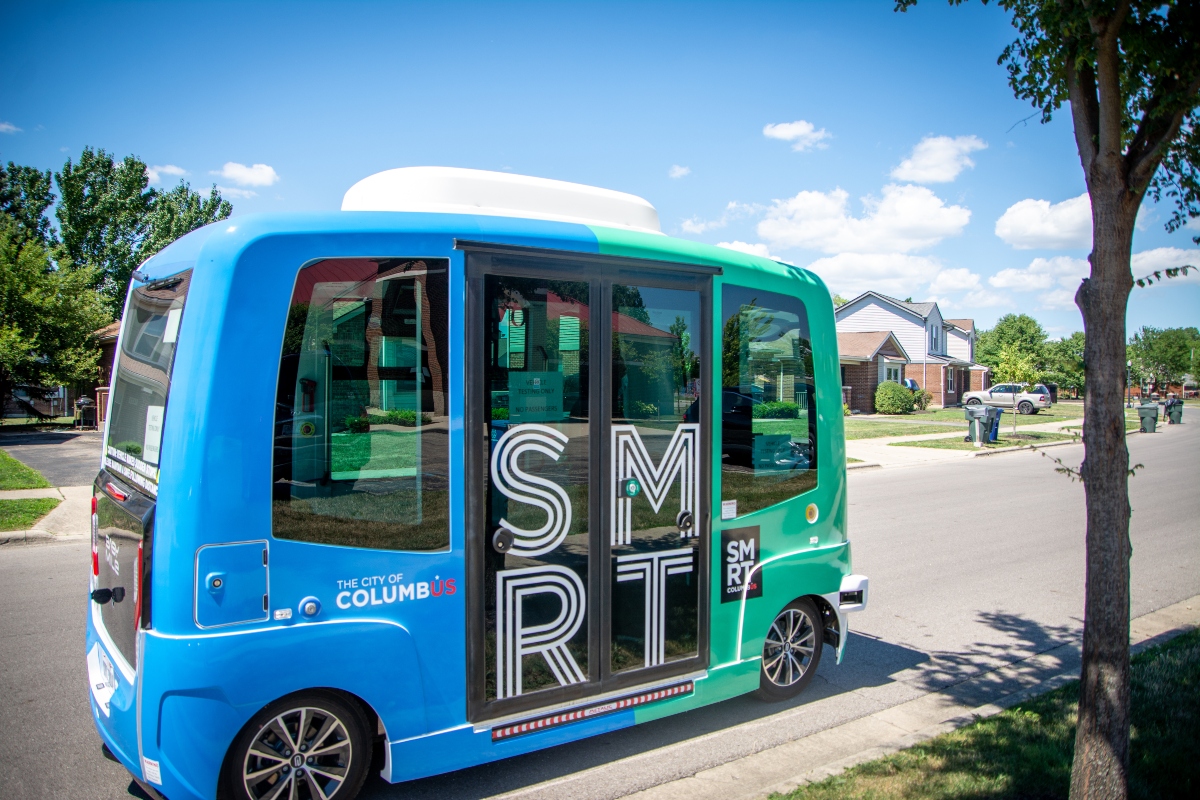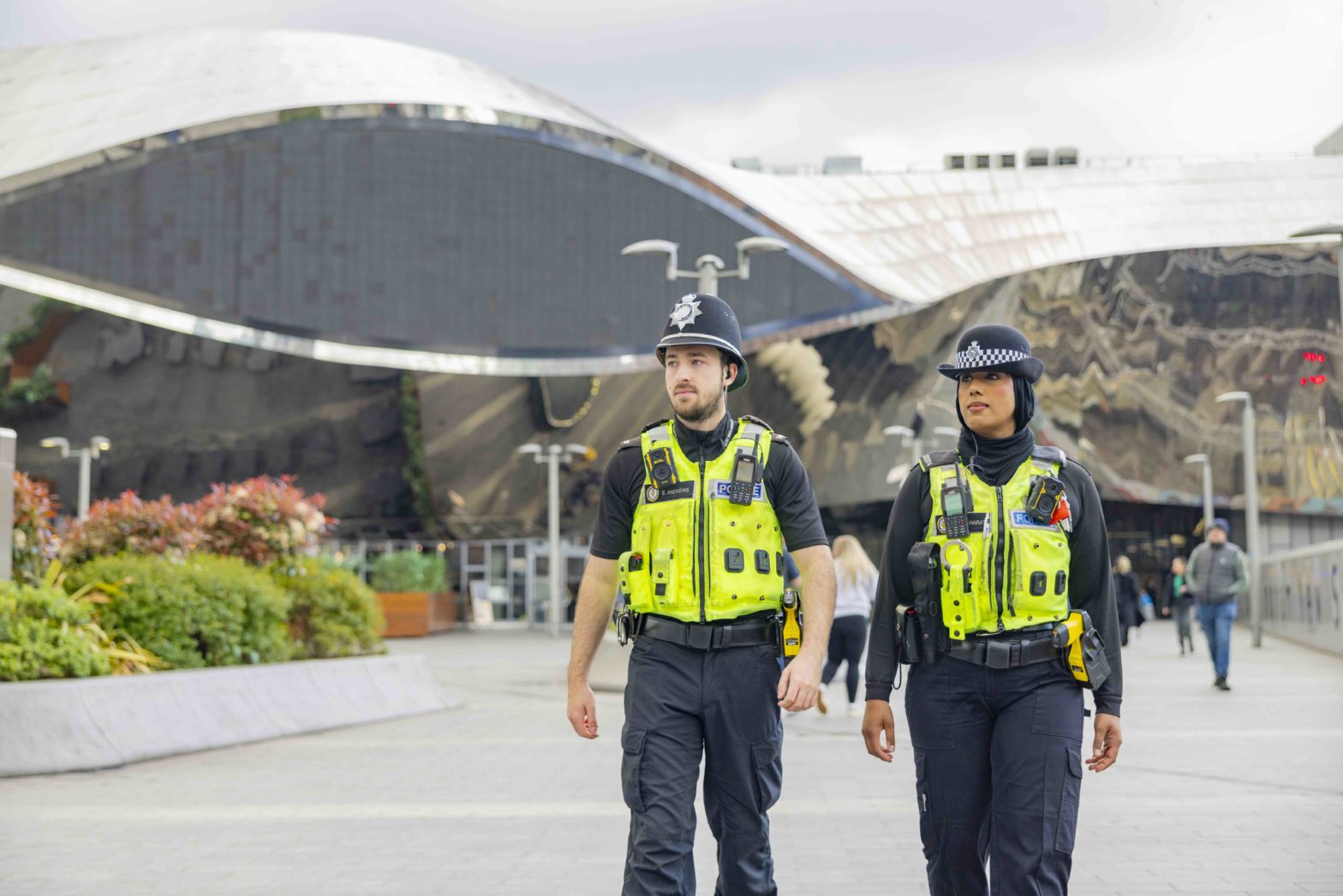
Photo: Linden Leap shuttle
Transport leaders share the secret to successful partnerships
03 August 2021
by Christopher Carey
As the digitalisation of public space intensifies at a rapid pace, cities often look to the private sector for solutions.
Gathering data – and keeping it secure – presents a unique set of challenges for innovators in the transit ecosystem, but also opens the door to new opportunities, including more equitable cities.
Cities Today spoke with Rikesh Shah, Head of Commercial Innovation, Transport for London (TfL); Jordan Davis, Director, Smart Columbus; and Stephen Zoegall, Global Cities, Transport & Infrastructure Lead, Accenture, to gauge how the next wave of mobility will impact cities and businesses on the ground.
How do current models for public-private-partnerships need to evolve to achieve greater scale?

Rikesh: When it comes to innovation, these relationships can take various forms. Firstly, it could be when the partnership is transactional, such as when the public entity pays a private company for research and development (R&D) services – quite often prescribing the innovation. In my experience, this rarely results in innovative outcomes. Another type of relationship is based on mutual value exchange, where the public entity shares problem statements, data and expertise, and provides access to assets. In return, the private entity provides expertise and technology which then results in a co-innovation solution. The immediate focus isn’t about ‘selling’ or ‘buying’. Of course, discussions on intellectual property and commercial rights need to be had in advance at the right time. We have recently used this approach with Bosch and Daimler, which produced some good outcomes. A third partnership is based solely on data, and the sharing of data to solve city challenges. For example, TfL partners with Waze on sharing traffic data with each other to help reduce congestion in the city. TfL openly shares its data to over 700 apps via a free open data API, which creates lots of value and allows companies to innovate to suit market needs.

Stephen: When working with our partners in the public sector, our starting point is always understanding their challenges. That means looking at intersecting modes of transportation, new business models, infrastructure needs and legacy infrastructure. We’re then looking for that combination of digital infrastructure and innovative partnership that will help the overall system stay up-to-date and responsive. Successful solutions and systems are based on FSFSF – Flexible, Scalable, Federated, Secure and Futureproof. FSFSF comprises core principles of platform design that are key to unlocking the potential of advanced digital tools to deliver on their long-term promises. And, ultimately, we think that can lead to better outcomes – whether that’s removing mobility deserts or sustaining momentum towards net-zero goals.
Jordan: I think the model of public private partnership needs to evolve in a way where we are better aligned on visions and goals, and allowing some co-creation with partnerships to take shape. So less focused on the tactical, procurement relationships, and more on the design and visioning of what the possible can be and what problems can be solved.
How has the increased digitalisation of the transport ecosystem impacted your team and your day-to day work?
Rikesh: The advances in technology have reduced barriers to entry and it’s much faster to bring in innovation. As such, it’s crucial for my team to be at the forefront of understanding both new technologies and how they could be applied at TfL and across London.

Jordan: The pace of digitalisation is continually moving the goal line and is just happening so quickly. The expectation of what seamless looks like and how frictionless experiences are expected across all dimensions of life certainly puts more and more pressure on expectations for how we navigate around in our communities.
Looking at data oversight of mobility, what measures could be incorporated to improve services?
Rikesh: With advances in technology, we are seeing new forms of mobility being introduced to cities. In the case of London, we have recently commenced the e-scooter trial with the London boroughs, with safety at its core. As part of this, we have procured a data-sharing platform, run by Blue Systems, which enables us to work with the e-scooter rental operators (Dott, Lime and Tier) to monitor activity across the city to help support the safe running of the trial, while also gathering data to help inform future policy decisions.
Jordan: I think there’s an opportunity to look at access and communities differently. There is both a qualitative and quantitative data gap we have in really being able to measure improvements on how we’re creating access to key populations or locations. I think the nuance of that is really dense in terms of ‘is it possible?’, or ‘how long does it take from that specific area?’ – there’s a gap in information in terms of the access base that we need to keep working at.
What role do you think the private sector could play in improving equity and access to transport in cities?
Rikesh: In London, we are aiming for 80 percent of journeys to be made by public transport, walking and cycling by 2041. Accessibility and equity are key elements – it’s essential that we work with the private sector to deliver a transport service for all. Through our influence, the private sector is already playing a key role to help achieve this goal, whether it’s the various bus operators, Keolis for the DLR, Arriva Rail for the London Overground or many other suppliers helping to support London’s transport network.
Jordan: There are opportunities for greater individualisation to meet people’s needs, pricing technology and such. The adoption of technologies that help us better meet individual needs.
Image: Smart Columbus







